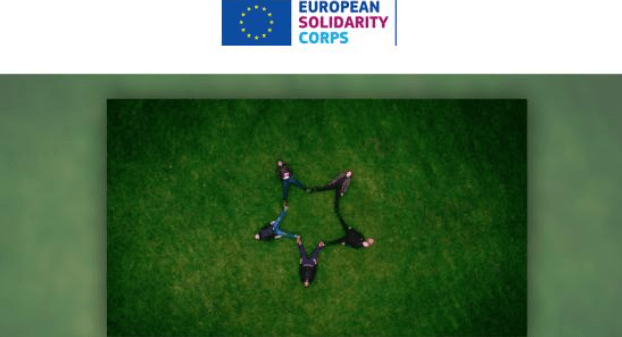LSolidarity projects must address key challenges within communities, where relevant, including those jointly identified in border regions, and must also present a European added value.
Who can participate
A group of at least 5 young people, aged between 18 and 30, legally residing in the same EU Member State or in a third country associated to the Programme and registered in the European Solidarity Corps Portal.
How it works
Solidarity projects should address key challenges within communities, but should also clearly present a European added value.
Participation in a solidarity project is an important non-formal learning experience through which young people can enhance their personal, educational, social and civic development.
A solidarity project usually consists of the following phases:
– Planning;
– Preparation;
– Implementation of the activities;
– Follow-up (including evaluation of the activities as well as dissemination of the project results).
The activities will take place in the participants’ country of residence, which will facilitate the participation of young people with fewer opportunities who may find it difficult to take part in transnational activities.
In cases where the project addresses cross-border challenges, project activities may also take place in cross-border regions of EU Member States, third countries associated to the Programme and third countries not associated to the Programme which share a border with the applicant’s country.
One of the participants will assume the role of legal representative who will be responsible for submitting the application (unless an organisation submits the application on behalf of the group).
Young people carrying out Solidarity Projects must design accessible and inclusive activities, taking into account the needs of participants with fewer opportunities.
Special funding is available for the participation of young people with fewer opportunities, both for the members of the group and for the target group.
Solidarity Projects should promote environmentally responsible and sustainable behaviour among participants, raising awareness of the importance of acting to reduce or offset the environmental footprint of activities.
Projects should also make use of digital tools and learning methods to complement physical activities.
Projects should also provide relevant opportunities for young people to engage and actively participate in democratic life.
Organisation
A group of young people planning a solidarity project can also apply for support from an organisation, which can be any public or private body.
An organisation can apply on their behalf for a grant under the European Solidarity Corps.
The role of the organisation should be primarily administrative, to support the group in the administrative and financial tasks of the project lifecycle. However, it can also offer support and guidance in identifying and documenting learning outcomes.
Coach
Young people carrying out a Solidarity Project can count on the support of a coach, a volunteer or professional, who might have work experience in the youth field, to accompany groups of young people and support their participation.
Financing
630 EUR per month.
Who can apply
The group that will implement the project. One of the young people in the group assumes the role of legal representative and the responsibility for submitting the application.
Any public or private body which, on behalf of the group, will implement the project, must submit the application to the National Agency of the country where the applicant is legally resident.
Further instructions on how to apply can be found in Part E of the European Solidarity Corps Guide.
Deadlines
– 20 February at 12:00 (midday Brussels time) for projects starting between 1 June and31 December of the same year;
– (optional shift) 7 May at 12.00 noon (Brussels time) for projects starting between 1 August and 31 December of the same year;
– 1 October at 12:00 (midday Brussels time) for projects starting between 1 January and31 May of the following year.
National Agencies can organise three selection rounds with three deadlines as above or only the first (20 February) and the last (1 October).
Please consult the website of the National Agency in your country.







Leave a Reply